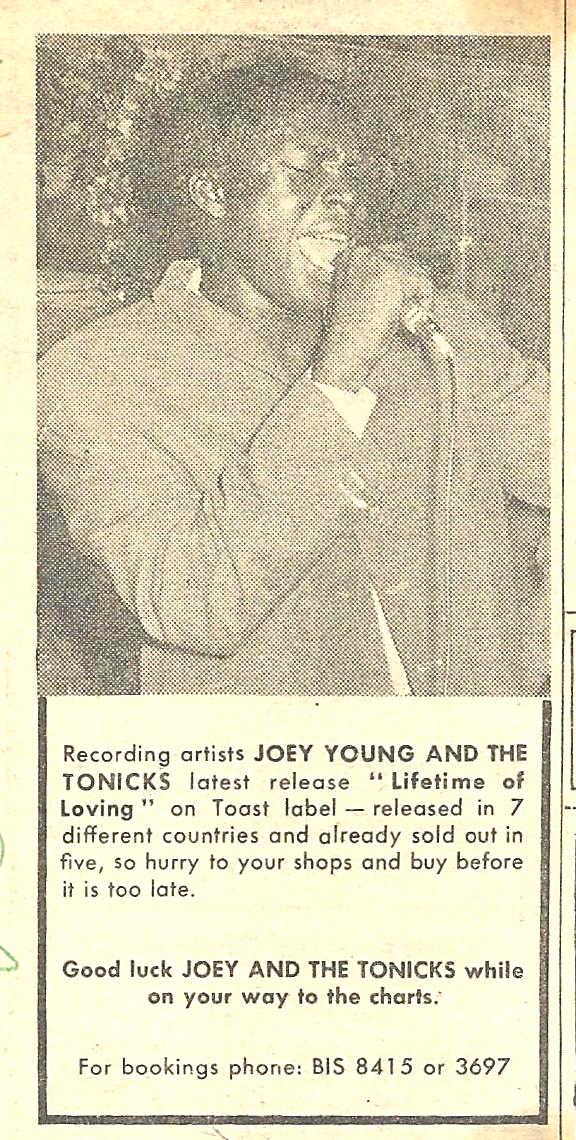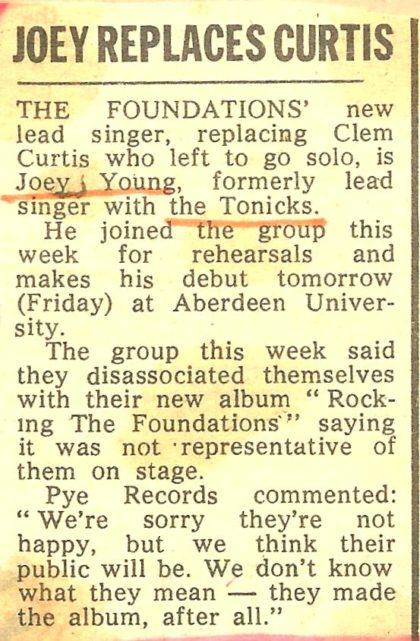
A Grade II-listed building located at 152 King’s Road in Chelsea, southwest London, the Pheasantry featured a rock club that put on shows by the likes of Queen and Hawkind in the early 1970s.
In 1969, both Ambrose Slade (aka Slade) and Mott The Hoople played here but most of the bands appear to have been up and coming unknowns.
It’s not entirely clear when it started to host rock music as it’s been difficult to find any local newspapers that advertised the venue. UK music magazine Melody Maker did advertise the venue but only on a regular basis in 1970 and there are still many gaps in the listings.
Together with the Mechanical Orange (a club in a crypt in a church) and the Café Des Artistes (both in Chelsea), the nearby Overseas Visitors Club (OVC) in Earl’s Court, plus the Pontiac club in Putney, this was a popular rock music venue in the area.
Guitarist Mike Piggott has confirmed that his group, Junior’s Conquest, fronted by future Bob Marley guitarist/singer Junior Kerr (aka Junior Marvin) frequently played here sometime in late 1968 and/or early 1969.
I’d be interested to hear from anyone who can add some more musical history to this venue during the years 1968-1970, particularly any missing gigs and whether there are any local papers that advertised the venue.
1968
Chelsea News and General Advertiser’s 29 March edition has an article entitled ‘Pheasantry reopens with a full house’, which notes that the basement now has a disco and dance floor. The club opened on the Monday (25 March).
According to Stefan Granados’ excellent article on The Majority in Shindig magazine, The Majority played at this venue just before Pete Mizen joined in October 1968.
27 October – Yes (Peter Banks’ website)
According to the Chelsea News and General Advertiser’s 20 December edition, Viv Prince was socialising in the club the previous week. On the same night, the band Giant was playing, managed by Alan Dale, former manager of Vamp, Prince’s old group.
16 December – My Dear Watson (Chelsea News and General Advertiser) This was apparently the Scottish band’s London debut
17 December – Toast (Melody Maker)
Westminster & Pimlico News’ 20 December edition has an article on the club and mentions the following bands playing there: Gethsemane, Clouds, The Majority and Village.
1969
There are very few listings for 1969, so I’d welcome any additions and memories.
11 June – Clouds (Time Out)
16 June – Clouds (Time Out)
21 June – Ambrose Slade (Time Out)
25 June – Clouds (Time Out)
29 June – East of Eden (Melody Maker) Interestingly, this is not in the list for 30 June below
30 June – East of Eden (Melody Maker/www.eastofedentheband.co.uk/GIGS.html)
18 July – Black Velvet (Time Out)
15 August – Clouds (Time Out)
21 August – East of Eden (Time Out)
23 August – Grail (Time Out)
28 August – East of Eden (Time Out/www.eastofedentheband.co.uk/GIGS.html)
27 September – Stray (Time Out)
11 October – Joe Cocker (Westminster and Pimlico News)
13 October – Skin Alley (Time Out)
15 October – Skin Alley (Time Out)
27 October – Mott The Hoople (Time Out)
24 November – Stray (Time Out)
1 December – Gracious (Time Out)
8 December – Gracious (Time Out)
15 December – Gracious (Time Out)
1970
The gigs below seem to suggest that shows took place from Monday-Saturday although the listing here is far from complete and has huge gaps.
18 February – Rosko International Road Show (Melody Maker)
19 February – Imagination (Melody Maker)
20 February – Justin Tyme (Melody Maker)
21 February – Eureka Stockade (Melody Maker)

2-3 March – Jon Hendricks (Martin H Samuel’s programme)
4 March – Spencer Mac (Melody Maker)
5 March – Imagination (Melody Maker)
6 March – Eureka Stockade (Melody Maker)
7 March – Bronco (Melody Maker)
9 March – Heatwave (Melody Maker/Martin H Samuel’s programme)
10 March – Emperor Rosko (Melody Maker)
11 March – Legend (Melody Maker)
The programme lists If not Legend
12 March – Justin Tyme (Melody Maker)
13 March – Eureka Stockade (Melody Maker)
14 March – Patrick Dane (& The Frontline Band) (Melody Maker)
The programme lists Balloons not Patrick Dane
16 March – Heatwave (Melody Maker/Martin H Samuel’s programme)
17 March – Rosko International Road Show (Melody Maker)
18 March – Bronco (Melody Maker)
19 March – Imagination (Melody Maker)
20 March – Trader Horne (Melody Maker)
21 March – Eureka Stockade (Melody Maker)
23 March – Heatwave (Melody Maker/Martin H Samuel’s programme)
24 March – If (Melody Maker)
25 March – Rosko International Road Show (Melody Maker)
The programme lists If on 25 March and (Emperor) Rosko on 24 March so other way round
26 March – Eureka Stockade (Melody Maker)
27 March – Justin Tyme (Melody Maker)
28 March – Balloons (Melody Maker)
30 March – Heatwave (Melody Maker/Martin H Samuel’s programme)
31 March – Rosko International Road Show (Melody Maker)
1 April – Eureka Stockade (Melody Maker)
2 April – Justin Tyme (Melody Maker)
3 April – Lloyd (Melody Maker)
4 April – Patrick Dane (& The Frontline Band) (Melody Maker)
6 April – Earthquakes (Melody Maker)
7 April – Heatwave (Melody Maker)
8 April – Spencer Mac (Melody Maker)
9 April – Justin Tyme (Melody Maker)
10 April – Eureka Stockade (Melody Maker)
11 April – Legend (Melody Maker)
13 April – Justin Tyme (Melody Maker)
14 April – Patrick Dane (& The Frontline Band) (Melody Maker)
15 April – Demon Fuzz (Melody Maker)
16 April – Sir Percy Quintet (Melody Maker)
17 April – Legend (Melody Maker)
18 April – Trader Horne (Melody Maker)
20 April – Earthquakes (Melody Maker)
21 April – Spencer Mac (Melody Maker)
22 April – Patrick Dane (& The Frontline Band) (Melody Maker)
23 April – Justin Tyme (Melody Maker)
24 April – Eureka Stockade (Melody Maker)
25 April – Eureka Stockade (Melody Maker)
27 April – Spencer Mac (Melody Maker)
28 April – Anqeleque (Melody Maker)
29 April – Sir Percy Quintet (Melody Maker)
30 April – Justin Tyme (Melody Maker)
1 May – Train (Melody Maker)
2 May – Sugar (Melody Maker)
4 May – Locomotive (Melody Maker)
5 May – Custers Track (Melody Maker)
6 May – Westland Steamboat (Melody Maker)
7 May – Sarah Gordon’s House of Bondage (Melody Maker)
8 May – Patrick Dane (& The Frontline Band) (Melody Maker)
9 May – Eureka Stockade (Melody Maker)
11 May – Locomotive (Melody Maker)
12 May – Pebbles (Melody Maker)
13 May – Sugar (Melody Maker)
14 May – Legend (Melody Maker)
15 May – Love Children (Melody Maker)
16 May – Syrup (Melody Maker)
18 May – Locomotive (Melody Maker)
19 May – Justin Tyme (Melody Maker)
20 May – Patrick Dane & The Frontline Band (Melody Maker)
21 May – Legend (Melody Maker)
22 May – Eureka Stockade (Melody Maker)
23 May – Syrup (Melody Maker)
25 May – Locomotive (Melody Maker)
26 May – Pebbles (Melody Maker)
27 May – Westbound Lounge (Melody Maker)
28 May – Legend (Melody Maker)
29 May – Justin Tyme (Melody Maker)
30 May – Syrup (Melody Maker)
1 June – 67 Park Lane (Melody Maker)
2 June – Crazy Mabel (Melody Maker)
3 June – Margarine (Melody Maker)
4 June – High Broom (Melody Maker)
5 June – Syrup (Melody Maker)
6 June – Justin Tyme (Melody Maker)
8 June – Calum Bryce and Poppa Ben Hook (Melody Maker)
9 June – Legend (Melody Maker)
17 June – Westland Steamboat (Melody Maker)
18 June – The Crew (Melody Maker)
19 June – 67 Park Lane (Melody Maker)
20 June – Calum Bryce (Melody Maker)
22 June – Justin Tyme (Melody Maker)
23 June – Brotherhood (Melody Maker)
24 June – Legend (Melody Maker)
25 June – High Broom (Melody Maker)
26 June – Calum Bryce (Melody Maker)
27 June – Syrup (Melody Maker)
29 June – Angelique (Melody Maker)
30 June – Justin Tyme (Melody Maker)

1 July – Heatwave (Melody Maker/Martin H Samuel’s programme)
2 July – Catapilla (Melody Maker)
3 July – Justin Tyme (Melody Maker)
4 July – Calum Bryce (Melody Maker)
6 July – Eureka Stockade (Melody Maker)
7 July – Bagge (Melody Maker)
8 July – Quincy (Melody Maker)
9 July – Catapilla (Melody Maker)
10 July – Love Children (Melody Maker)
11 July – Pussyfoot Tram (Melody Maker)
13 July – Syrup (Melody Maker)
14 July – Pure Wings (Melody Maker)
15 July – Eureka Stockade (Martin H Samuel’s programme)
16 July – Catapilla (Martin H Samuel’s programme)
17 July – Ritual (Martin H Samuel’s programme)
18 July – Gift (Martin H Samuel’s programme)
20 July – Charge (Martin H Samuel’s programme)
21 July – Westland Steamboat (Martin H Samuel’s programme)
22 July – Spencer Mac (Melody Maker)
23 July – Catapilla (Melody Maker)
24 July – Portrait (Melody Maker)
25 July – Crew (Melody Maker)
27 July – Calum Bryce (Melody Maker)
28 July – Greasy Bear (Melody Maker)
29 July – Pure Wings (Melody Maker)
30 July – Catapilla (Melody Maker)
31 July – Magic Roundabout (Melody Maker)

1 August – Eureka Stockade (Melody Maker)
3 August – Free Design (Melody Maker)
4 August – Magic Roundabout (Melody Maker)
5 August – Catapilla (Melody Maker)
6 August – My Cake (Melody Maker)
7 August – Justin Tyme (Melody Maker)
8 August – Eureka Stockade (Melody Maker)
10 August – Free Design (Melody Maker)
11 August – Custer’s Track (Melody Maker)
12 August – Catapilla (Melody Maker)
13 August – Crew (Melody Maker)
14 August – Blonde on Blonde (Melody Maker)
15 August – Guest group (Melody Maker)
17 August – Robbie Ray & The Roundabouts (Melody Maker)
18 August – John McFlair Band (Melody Maker)
19 August – Catapilla (Melody Maker)
20 August – Heatwave (Melody Maker)
21 August – Angelique (Melody Maker)
22 August – Mirrors (Melody Maker)
24 August – Free Design (Melody Maker)
25 August – Robbie Ray & The Roundabouts (Melody Maker)
26 August – Justin Tyme (Melody Maker)
27 August – Portrait (Melody Maker)
28 August – Noir (Melody Maker)
29 August – Legend (Melody Maker)
31 August – Justin Tyme (Melody Maker)

1 September – Big Bertha (Melody Maker)
2 September – Manderin Craze (Melody Maker)
3 September – Arcadium (Melody Maker)
4 September – Ginger (Melody Maker)
5 September – Patrick Dane (& The Frontline Band) (Melody Maker)
7 September – Calum Bryce (Melody Maker)
8 September – Heatwave (Melody Maker/Martin H Samuel’s programme)
9 September – Pure Wings (Melody Maker)

10 September – Spencer Mac (Melody Maker)
11 September – Angelique (Melody Maker)
12 September – Crew (Melody Maker)
14 September – High Broom (Melody Maker)
15 September – Calum Bryce (Melody Maker)
16 September – Quincy (Melody Maker)
17 September – Crew (Melody Maker)
18 September – Angelique (Melody Maker)
19 September – Mako (Melody Maker)
21 September – Portrait (Melody Maker)
22 September – Calum Bryce (Melody Maker)
23 September – Heatwave (Melody Maker/Martin H Samuel’s programme)
24 September – Consortium (Melody Maker)
25 September – Spencer Mac (Melody Maker)
26 September – Legend (Melody Maker)
28 September – Love’s Children (Melody Maker)
29 September – Barley (Melody Maker)
30 September – Robbie Ray & The Roundabouts (Melody Maker)

1 October – Crew (Melody Maker)
2 October – Orange Air (Melody Maker)
3 October – Elton Chess (Melody Maker)
5 October – John McFlair Band (Melody Maker)
6 October – 67 Park Lane (Melody Maker)
7 October – Custers Track (Melody Maker)
The programme has Osibisa not Custers Track
8 October – Almond Diamond (Melody Maker)
The programme lists Almond Marzipan
9 October – Calum Bryce (Melody Maker)
10 October – Growth (Melody Maker)
The programme lists Merlin not Growth
12 October – John McFlair Band (Melody Maker)
13 October – Justin Tyme (Melody Maker)
14 October – Heatwave (Melody Maker/Martin H Samuel’s programme)
15 October – Legend (Melody Maker)
16 October – Orange Air (Melody Maker)
17 October – Calum Bryce (Melody Maker)
19 October – Portrait (Melody Maker)
20 October – Spencer Mac (Melody Maker)

21 October – Magic Roundabout (Melody Maker)
22 October – Free Ferry (Melody Maker)
23 October – Calum Bryce (Melody Maker)
24 October – Orange Air (Melody Maker)
26 October – Satisfaction (Melody Maker)
27 October – Patrick Dane & The Frontline Band (Melody Maker)
28 October – Crazy Paving (Melody Maker)

29 October – Love Children (Melody Maker)
30 October – Orange Air (Melody Maker)
31 October – Calum Bryce (Melody Maker)
I don’t have any listings for November and December but I am pretty sure it was operating during these months as the club continued in 1971 and beyond.
1971

10 February – Heatwave (Martin H Samuel’s programme)

10 March – Heatwave (Martin H Samuel’s programme)

29 April – Heatwave (Martin H Samuel’s programme)

11 August – The Crew (Martin H Samuel’s clipping)
18 August – Heatwave (Martin H Samuel’s programme)
27 August – The Crew (Martin H Samuel’s clipping)
Copyright © Nick Warburton. All Rights Reserved. No part of this article may be reproduced or transmitted in any from or by any means, without prior permission from the author.

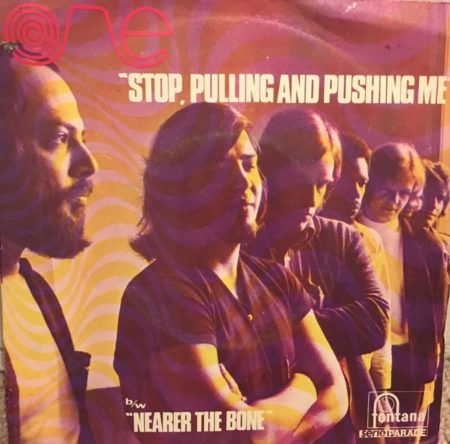
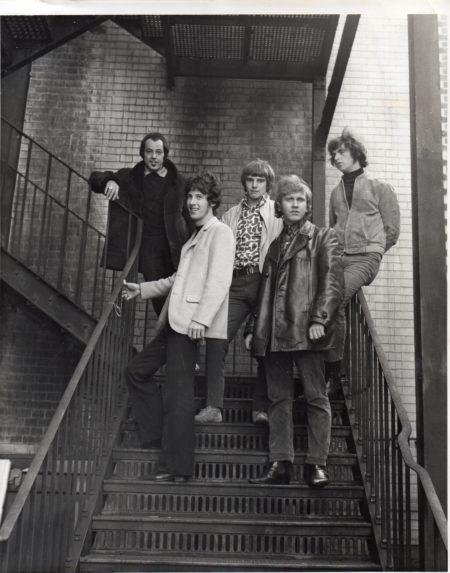
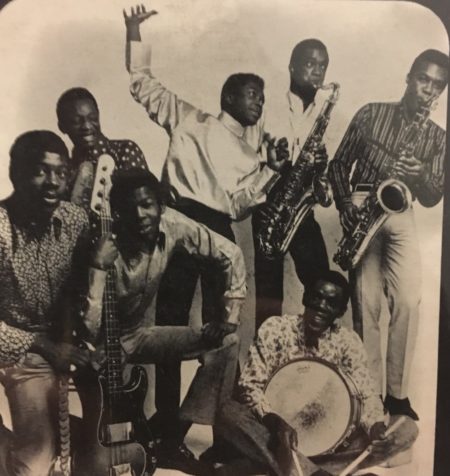
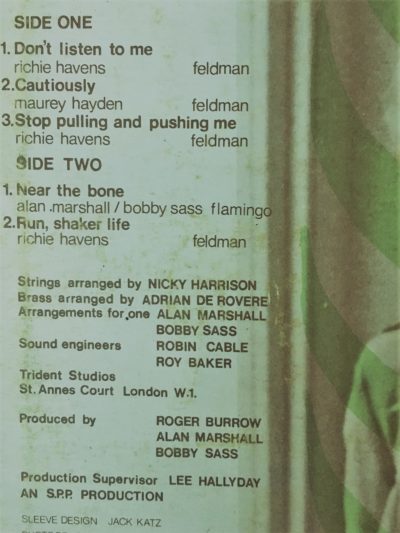 Production was split between the band’s manager Roger Burrow and Alan Marshall and Bobby Sass, working with sound engineers Robin Cable and Roy Baker. Production supervision meanwhile was handled by Lee Hallyday, who’d recently recorded his brother Johnny’s self-titled LP in France. According to several band members, the sessions at Trident’s studios also featured Alan Marshall’s former band mate from The Loose Ends and Happy Magazine, Peter Kirtley, who provided lead guitar on several cuts.
Production was split between the band’s manager Roger Burrow and Alan Marshall and Bobby Sass, working with sound engineers Robin Cable and Roy Baker. Production supervision meanwhile was handled by Lee Hallyday, who’d recently recorded his brother Johnny’s self-titled LP in France. According to several band members, the sessions at Trident’s studios also featured Alan Marshall’s former band mate from The Loose Ends and Happy Magazine, Peter Kirtley, who provided lead guitar on several cuts.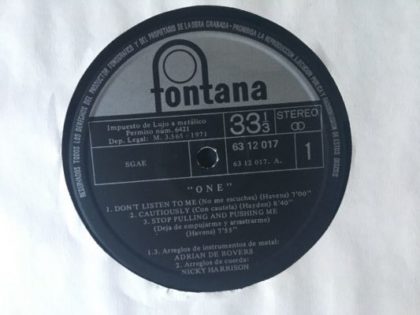 That may well be, but One’s storming cover of Havens’ “Don’t Listen To Me”, which opens the LP and third track, “Stop Pulling and Pushing Me” are inspired, extended workouts full of inventive playing and powerful instrumental passages. The musicians also do justice to “Cautiously”, an atmospheric reading of the ballad written by Maurey Hayden, singer, stand-up comedian and wife of Lenny Bruce. Alan Marshall and Bobby Sass’s “Near The Bone”, the band’s lone contribution to the song-writing stakes is also noteworthy.
That may well be, but One’s storming cover of Havens’ “Don’t Listen To Me”, which opens the LP and third track, “Stop Pulling and Pushing Me” are inspired, extended workouts full of inventive playing and powerful instrumental passages. The musicians also do justice to “Cautiously”, an atmospheric reading of the ballad written by Maurey Hayden, singer, stand-up comedian and wife of Lenny Bruce. Alan Marshall and Bobby Sass’s “Near The Bone”, the band’s lone contribution to the song-writing stakes is also noteworthy.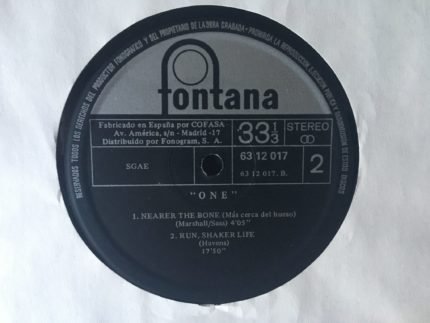 During March-April 1970, the musicians got to meet Stephen Stills, who was in London to record sessions for his first solo LP. It’s not clear who in the band made the initial contact. Marshall says that he used to leave the flat door open and musicians used to wander in. One strong possibility is Roger Burrow, who of course was a friend of Graham Nash’s. Alan Marshall, however, is pretty certain that it was Bobby Sass who ran into Stills.
During March-April 1970, the musicians got to meet Stephen Stills, who was in London to record sessions for his first solo LP. It’s not clear who in the band made the initial contact. Marshall says that he used to leave the flat door open and musicians used to wander in. One strong possibility is Roger Burrow, who of course was a friend of Graham Nash’s. Alan Marshall, however, is pretty certain that it was Bobby Sass who ran into Stills.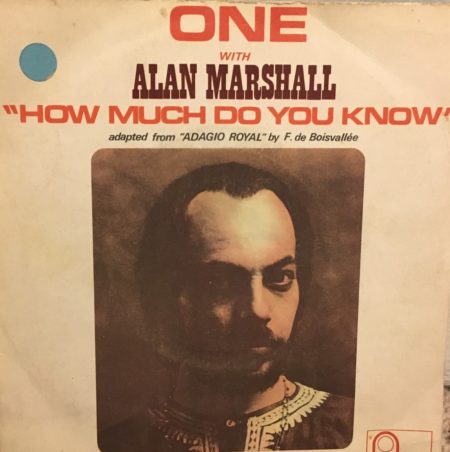 Interestingly, while One’s revolving door of personnel changes continued at pace, Fontana issued a French-only ‘45, ‘How Much Do You Know” (adapted from Adagio Royal by F de Boivallee), which was credited solely to Alan Marshall backed by One’s ‘Don’t Listen To Me”.
Interestingly, while One’s revolving door of personnel changes continued at pace, Fontana issued a French-only ‘45, ‘How Much Do You Know” (adapted from Adagio Royal by F de Boivallee), which was credited solely to Alan Marshall backed by One’s ‘Don’t Listen To Me”.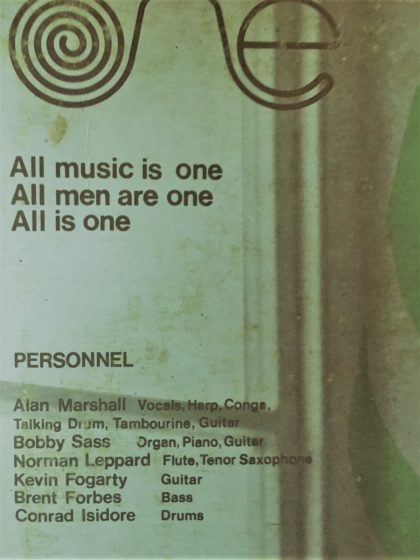 As for One, the group remains something of an obscurity. While the LP has been issued on CD by two different labels, neither appear to be official releases. Given the collectability of the record and the fact that a mint copy will probably fetch you close to £100, perhaps it’s time that the band was given a proper re-issue treatment, complete with detailed liner notes.
As for One, the group remains something of an obscurity. While the LP has been issued on CD by two different labels, neither appear to be official releases. Given the collectability of the record and the fact that a mint copy will probably fetch you close to £100, perhaps it’s time that the band was given a proper re-issue treatment, complete with detailed liner notes.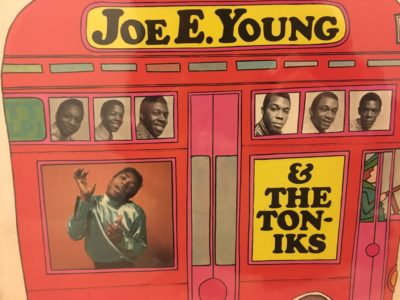 Colin Young – lead vocals
Colin Young – lead vocals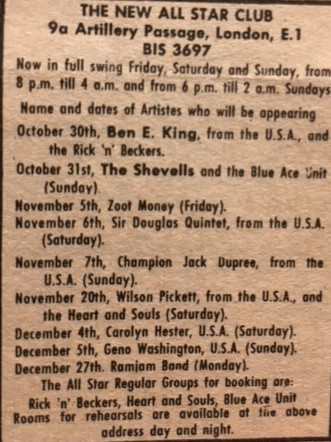
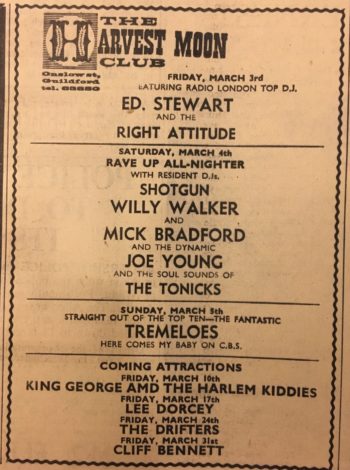
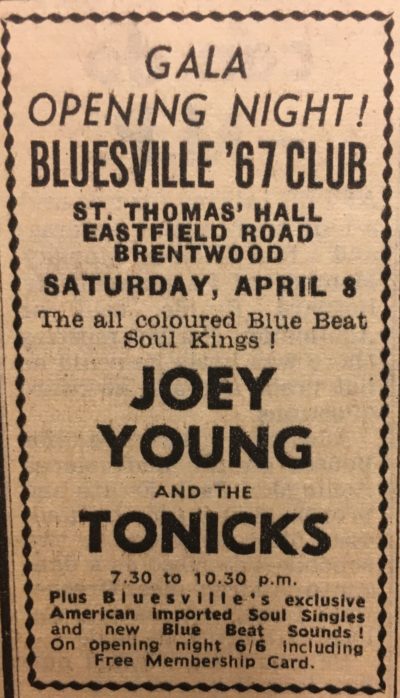










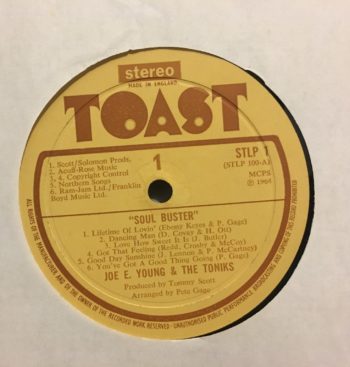 Two of the earliest tracks to be recorded were two Pete Gage songs, co-written with Ebony Keyes (aka Kenrick Pitt), “Lifetime of Lovin’” c/w “Flower In My Hand”. Paired as a single, the tracks were issued on Toast in January 1968 but did not chart. Incidentally, the single also saw a South African release on the Continental label.
Two of the earliest tracks to be recorded were two Pete Gage songs, co-written with Ebony Keyes (aka Kenrick Pitt), “Lifetime of Lovin’” c/w “Flower In My Hand”. Paired as a single, the tracks were issued on Toast in January 1968 but did not chart. Incidentally, the single also saw a South African release on the Continental label.